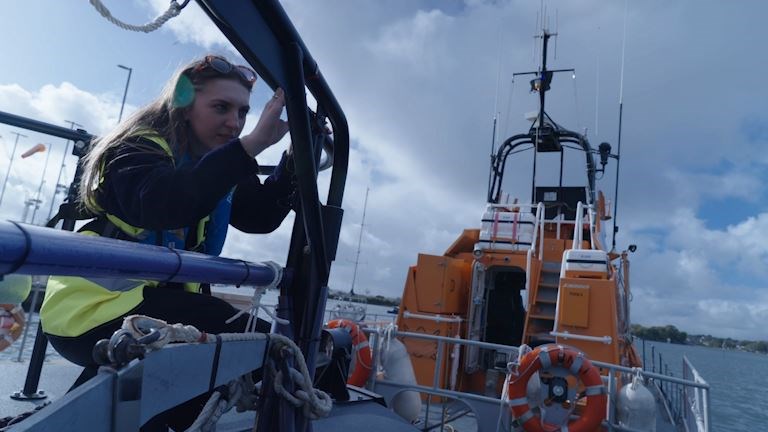Designing life saving equipment
Natasha loved D&T at school, and now gets to use her design skills to create life saving equipment

If you want a career that's versatile, where you have a lot of transferable skills and the options to go into pretty much any industry that you can think of, then engineering is definitely career for you.
My name is Natasha Banks and I'm a Naval Architect at the RNLI.
I was inspired to go into engineering from school. I really like technical subjects, like maths, physics, science, all of that stuff.
But my favourite subject was D&T. I liked designing, building, having to think of processes to get from design to product.
That was kind of what inspired me to go into something technical, then going into engineering was really my mum introduced me to the idea of it!
She studied engineering at uni and became an engineer at Rolls-Royce at the beginning of her career.
Once I did research into and realised the different industries I could go into, I knew that I would find something that I really liked.
My first steps of my career into engineering were looking around at different universities and different courses and deciding what engineering I wanted to do.
I ended up loving naval architecture and went to the University of Newcastle to study marine engineering and naval architecture.
In July last year, I graduated and immediately started as a Junior Naval Architect here at the RNLI, and then 16 months later I've just been promoted to Naval Architect.
The most interesting project I've worked on is probably my work on mass casualty rescues with the operations team.
So as an organisation, we quite often only save one or two people out of the water, or offer a boat in need.
Whereas this is simulating multiple people in the water, and developing specialist equipment for that case, which is a bit different of our usual ways of rescuing.
I support operations, provide naval architecture support and the development of any bits of kit. It's really rewarding and it's a bit different because it's outside of our kind of standard bits of kit.
The thought of stuff that I designed helping save lives... I think I kind of forget that that's what I do, if that makes sense, because it's my day job.
I think once I kind of speak about what I do with friends and family, they remind me of the impact that the stuff I design.
If I was saving lives at sea and I see the crews there, it kind of hits me again - Oh, the stuff I'm making actually does help people and it is going to help the crew save lives!
It's a really special feeling and always a bit emotional and makes you really proud of what I do.